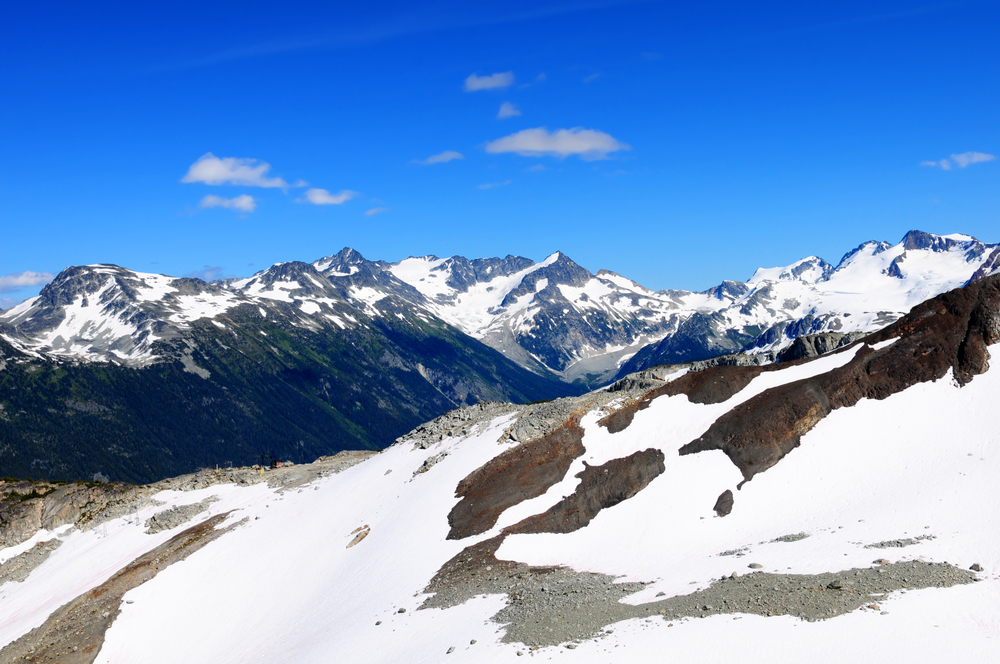Canada News
Unprecedented melt of B.C. glaciers seeps into U.S. climate change concerns
VANCOUVER — The mountains of British Columbia cradle glaciers that have scored the landscape over millenia, shaping the rugged West Coast since long before it was the West Coast.
But they’re in rapid retreat, and an American state-of-the-union report on climate change has singled out the rapid melt in British Columbia and Alaska as a major climate change issue.
“Most glaciers in Alaska and British Columbia are shrinking substantially,” said the U.S. National Climate Assessment, released last week to much fanfare south of the border.
“This trend is expected to continue and has implications for hydropower production, ocean circulation patterns, fisheries, and global sea level rise.”
According to the report, glaciers in the region are losing 20 to 30 per cent of what is melting annually from the Greenland Ice Sheet, which has received far more worldwide attention.
That amounts to about 40 to 70 gigatons per year, or about 10 per cent of the annual discharge of the Mississippi River.
“The global decline in glacial and ice-sheet volume is predicted to be one of the largest contributors to global sea-level rise during this century,” the report said.
It is some of the fastest glacial loss on Earth. The cause: rising temperatures due to climate change.
“We’ve seen an acceleration of the melt from the glaciers,” said Brian Menounos, a geography professor at the University of Northern British Columbia and one of the scientists involved in cross-border, multi-agency research into glacial loss.
There are 200,000 glaciers on Earth, 17,000 of them in British Columbia. Another 800 are in Alberta.
In B.C., researchers are keeping a close eye on the Lloyd George Icefield west of Fort Nelson, the Castle Creek Glacier near McBride, the Klinaklini and Tiedemann glaciers in the Coast Mountains, and glaciers in the Columbia River Basin.
Early results suggest these glaciers are shedding 22 cubic kilometres of ice annually, or about 22 billion cubic metres of water. For comparison, an Olympic swimming pool contains about 2,500 cubic metres of water.
“When we start to look at some of these individual mountain ranges, we’re seeing some rates that are truly exceptional,” Menounos said.
Similar loss is happening worldwide, and it is accelerating.
“Collectively start putting all of those numbers together, then there is the potential to raise sea level by something on the order of 30 to 40 centimetres from that ice,” he said.
The U.S. Geological Service estimates that the glacier namesakes of Glacier National Park in their portion of the Rocky Mountains will disappear by 2030.
Menounos predicts that the smaller glaciers in B.C. — in the Rocky Mountains and the Interior — will be mostly gone by the end of this century.
The effects will be far-reaching, research suggests.
Glacial water is a thermal regulator in mountain headwater streams, Menounos said. Their loss will affect water temperatures, fish and the annual snow pack. That will affect the water supply and agriculture.
There could be greater potential for flooding in wet seasons and drought in dry, a particular problem in B.C., which relies on hydroelectricity to meet its energy needs.
The glacial decline in western Canada and Alaska significantly contributes to sea level rise, said the U.S. report. That’s happening around the world and will only get worse, Menounos said.
“Even 40 centimetres of sea level rise will cause annual flooding for 100 million people on the planet,” he said.
Glacial loss can be slowed, Menounos said. The biggest issue is human consumption of fossil fuels.
“We know what we need to do,” he said. “It’s not an easy decision, but we have to start, I would argue, thinking about changing our reliance on fossil fuels.”






















